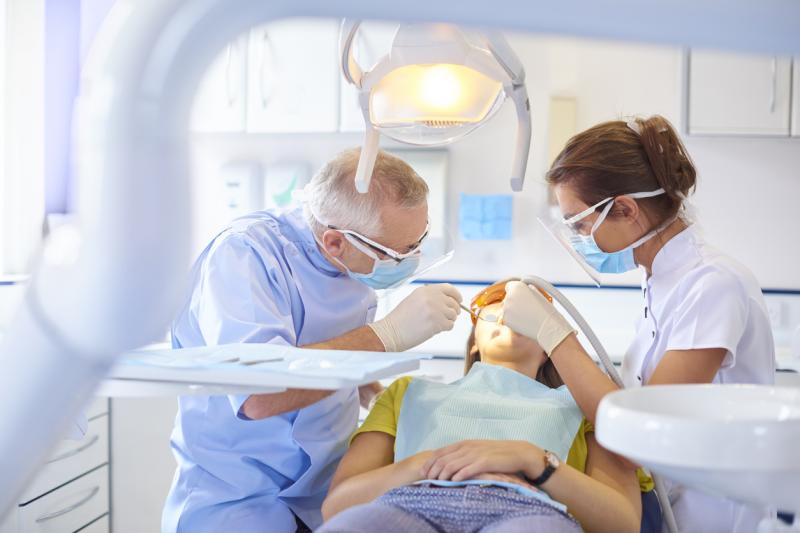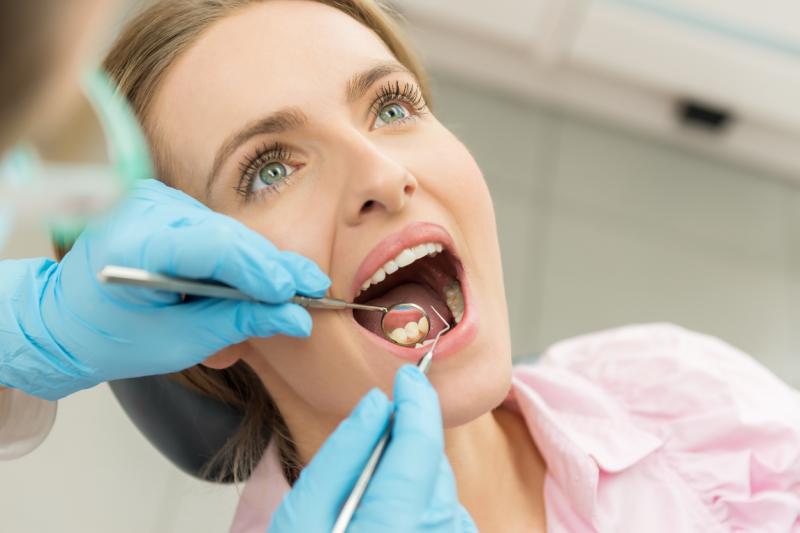The 6 Steps to Dental Cleanings

Some might not realize it, but oral care often plays a major role in one's general health and, quite possibly, their longevity. One key component of maintaining healthy teeth and gums is to receive regular professional cleanings from an experienced dentist.
Drtraceydowntowndental.ca invites existing patients and those concerned about dental well-being to continue reading to learn six critical events that should be part of every professional dental cleansing session and the consequences of not obtaining such care.
Six Important Facets Of Professional Dental Cleaning
Plaque And Tartar Removal
The teeth and gums are often plagued by potentially hazardous materials known as plaque and tartar.
Plaque is a thick, sticky substance made up of lingering food particles, pathogens like bacteria, liquid, and bodily fluids like saliva. Over time, this material affixes to the teeth. Though significant degrees of plaque can be eliminated through hygienic actions such as brushing and flossing, the substance can penetrate into hard to reach oral regions. Therefore, professional cleansings are often needed to get rid of lingering amounts.
Tartar, known scientifically as calculus, comprises hardened calcium collections that often combine with plaque to form clumps of difficult to remove sediments accumulating along the gum line.
During professional cleanings, a dentist will use a specialized instrument called a scaler, which is capable of breaking up and eliminating these substances.
The Application Of Specialized Toothpaste
Once collections of tartar and plaque have been removed, many dentists will then apply a specialized toothpaste using an electric toothpaste. The electric instrument's quick movement enables its bristles to penetrate deep between the teeth and into surrounding gums. Dental grade toothpaste has the ability to scrub the teeth to ensure the elimination of any stubborn particles.
Rinsing
During professional dental cleanings, and oral care professional will offer patients special rinsing solutions. These products are designed to kill existing bacteria and augment the cleansing process. Typically, these rinses contain appreciable amounts of fluoride.
Comprehensive Exam
Cleanings should include a thorough examination of the patient's teeth, gums and other oral components. These investigations will snuff out the emergence of potentially serious dental issues such as tooth decay, cavities, and varying stages of gum disease. That said, exams might also spot structural problems and possibly more serious illnesses like oral cancer. Additionally, certain dental exams may also include evaluations of neighbouring systemic components, including the jaw, neck and head.
Flossing
Dental professionals often employ dental-grade floss after the initial cleaning procedures are complete. Said individuals usually perform this procedure to rub out any loose accumulations of plaque and tartar.
Fluoride Application
Typically, the last part of a routine dental cleaning is a fluoride application. This substance is placed onto a patient's teeth in either a gel-like substance or is painted onto the teeth using a small brush-like implement. Fluoride is a notorious germ fighter and provides additional protection against issues like cavities, oral diseases and tooth loss.

It is worth noting that other events might occur during a routine cleansing. For example, if the examining oral care provider finds anything suspicious, they might order diagnostic tools like X-rays.
Consequences Of Delaying Or Not Receiving Professional Cleaning
Failure to receive sufficient professional dental cleanings could yield several untoward, potentially serious problems such as:
Tooth Loss And Gum Disease
Excessive buildups of substances like plaque and tartar will eventually contribute to dental ailments like gum disease and tooth loss. These occurrences could make simple actions like speaking and eating hard. Moreover, such events are unsightly and diminish an individual's smile and facial aesthetics.
Nutritional Deficiencies
Missing or damaged teeth could interfere with normal digestion and significantly limit the types of foods and beverages impacted subjects can consume.
Infections
Damaged teeth or gums are often susceptible to infections. Occasionally, these maladies could spread beyond the oral cavity and travel through the bloodstream or to distant organs.
Systemic Illnesses
Research studies have linked a lack of dental care to certain notable systemic ailments like diabetes and cardiovascular problems such as strokes, heart attacks and blood vessel disorders.
More to Read:
Previous Posts:





